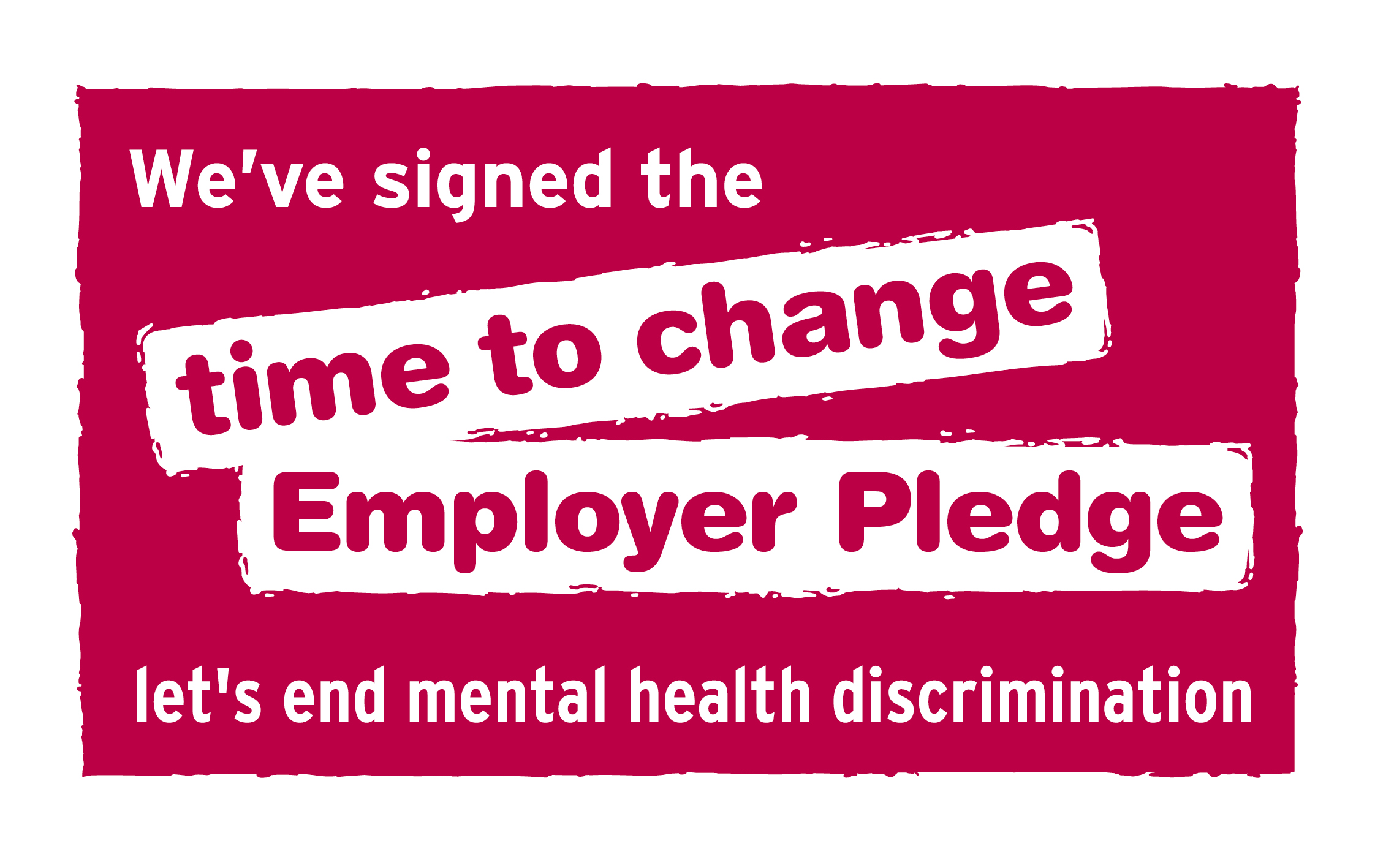UK&I – United Kingdom & Ireland
News about Experian United Kingdom and Ireland:

In an article published by Bloomberg this week, Brian Cassin, Experian CEO, discusses the transformation of the business from a credit bureau to an innovative, global information services firm. The story highlights some of the remarkable work Experian does with high-profile clients including Coca-Cola and Fannie Mae, using data to inform marketing and strategy decisions. The article also references recent product innovations including Ascend, which offers analytics on demand, and PowerCurve, our market-leading decision analytics platform. Worth mentioning is that Experian’s strong financial performance also comes through in the article, which notes that the company’s stock price has doubled since 2015 while the FTSE 100 index has stagnated. Check out the full article.

Data science is transforming the way the world works. And yet it’s no secret that there aren’t enough women pursuing a career in STEM. At Experian, we’d love to see that change. It’s better for everyone when industries are diverse; it makes us all stronger, more creative and more effective. Part of encouraging new generations into our industry means recognising and celebrating the achievements of the female role models working in data today. That’s why we’re thrilled to sponsor this year’s Women in Data (WiD) conference, an event designed to help inspire, educate and support women in the industry. Women like Experian’s Sarah Robertson, who recently shared her story with leading women’s publication, We Are The City, and who will be sitting on our panel session at the event. We want to have a workforce that’s as rich in diversity as the people who use our services. That’s one of the many reasons we’re so excited by WiD’s mission. Together we hope to empower and encourage women into the data science industry, supporting the next generation of data scientists who can help shape the future. You can find out more about the WiD community on our recent podcast.

Every day we work with companies doing amazing things with their data. We are therefore delighted to be sponsoring the very first Experian ‘Data Excellence’ award at this year’s Lloyds Bank National Business Awards. It gives us the chance to celebrate organisations for their innovative thinking and excellent use of data - an area we at Experian are very passionate about. The quality of entries for this category was high, showcasing some real-life examples of how data-driven solutions can not only deliver better outcomes for customers, but also embrace the opportunities presented by an ever-changing data landscape. However, there could only be one winner. So, we are pleased to announce that Cleveland Police are the deserving recipient of the inaugural award for their ‘Golden Nominal’ project – an initiative which demonstrates how the power of better data can have a positive impact on policing. The project responds to the huge challenge that having vast, unquantifiable number of duplicate records was posing on delivering an efficient and appropriate response to the community. And not only has it far surpassed targets in terms of reducing duplicates, most importantly it’s provided opportunities to serve the community better and identify those most vulnerable far more quickly. Such was its innovative nature, the project was recognised at a national level by the Home Office, who provided co-funding from its Innovation Fund – a fantastic result for them. The award was presented by Experian’s Chief Data Officer, Jonathan Westley, to Maria Hopper from Cleveland Police at the awards ceremony in London. She said: “We’re absolutely thrilled to be named as winners of the ‘Data Excellence’ award. Our data initiative allowed us to solve a challenge that was hindering our ability to respond quickly and accurately to those who need it most in our community. For us, winning this award is fantastic recognition of the critical role that data plays in delivering positive policing and keeping people safe.” To hear more from Maria, you can watch this short video. We would like to congratulate Cleveland Police on a well-deserved award win, along with all the other winners on the night. To find out more, you can visit the National Business Awards website.

The following is written by Jan Barratt, Experian. We owe everything to the millions who lost their lives in the Great War, fighting for our freedom. Without their sacrifice, the world we know would be a very different place. This November marks a whole century since the guns finally fell silent on WW1. It’s only fitting we use this landmark anniversary to remember and celebrate everything they did for us. The Games of Remembrance 2018 is an opportunity to do exactly that. Inspired by a generation’s love of football and its ability to unify, The Games of Remembrance harnesses the power of the beautiful game to remind us all of the immense bravery and sacrifice of millions. We’re proud to sponsor the Games and to play a small part in helping those memories live on and to commemorate the people who lost their lives in the conflict. Furthermore, we’re thrilled that this year’s celebration comes to Nottingham, a place where Sir John Peace, Her Majesty’s Lord-Lieutenant of Nottinghamshire, and the late Eric Barnes built up Experian from its roots almost 50 years ago. Today, we employ more than 2,000 people across the East Midlands region. We’re proud to be sponsoring the Games of Remembrance, and we are proud to be part of the Nottingham community. We remember.

The following is written by Alison Sharp, Experian. Mental illness affects thousands of people in the UK, their friends, families and work colleagues. In fact, one in four of us will be affected by mental health issues at some stage of our lives. It's hard enough to experience mental health problems, without having to face the judgement, shame and isolation that often surrounds it. Today is World Mental Health Day, an opportunity for us, and others, to help raise awareness of mental health issues. However, our work to change the way people think and act about mental health problems doesn’t stop here. I am proud that our MD, Charles Butterworth, signed the Time to Change pledge last month, to help bring an end to mental health discrimination and show our commitment to supporting mental health awareness. Signing the pledge marks the beginning of a shift to make sure well-being and mental health support becomes the norm for us. I believe that the workplace should be an environment where everyone can thrive, no matter who they are. Experian joins the wide movement of more than 800 organisations that have signed the Time to Change pledge, including E.ON, British Gas, Ernst & Young, Transport for London, Royal Mail, Barclays, Shell, Pepsico, the Church of England, Sunday Mirror, Marks and Spencer, WH Smiths and many NHS trusts, universities, and local authorities. At Experian, we are dedicated to making colleagues feel more support and connected to the help we have, as and when they need it. I truly believe that mental health is something that shouldn’t be brushed off or pushed aside and I hope that if you are suffering, or know someone that is, that you have the courage to reach out for support because after all, it is OK to not be OK.

The world in 2018 is defined by data. Vast quantities of information flow through our lives like threads across an elaborate tapestry. On a micro level, these threads bind the business world together. But they also come together to weave a picture of the economy that is colourful, detailed, and uniquely fascinating. At Experian, we process more than 1.5 billion records per year, making us specialists in the processing and understanding of this data - and in making sure it is used for the benefit of consumers and businesses. To share our unique perspective, we’ve created our first ever Spending Power Index. The index looks at the UK’s income and spending habits, including both a detailed view of the present, and insight into longer term trends and the nation’s changing preferences. Giving businesses the bigger picture Stepping back from day-to-day business to look at the whole economy is a chance to identify new opportunities and work out the best ways of adapting to new challenges. The insights we’re providing through the Spending Power Index are designed to fuel that process by offering a view of existing and emerging trends across all demographic segments of the UK economy. What is the Spending Power Index? We’ve defined ‘Spending Power’ as a combination of key factors: Average income growth over time Levels of spending for one demographic group when compared to another Levels of spending as a proportion of incomes These combined factors reveal a wealth of hidden information about income and spending. All these insights have been drawn from Experian’s modelled data using secondary sources such as our ‘Financial Strategy Segmentation’ (FSS) tool. The data for this comes from a range of publicly and commercially available sources, such as the edited Electoral Roll, the UK Census and permission-based market research data taken, for example, from the lifestyle questionnaires many of us complete. New insights and confirming market trends Some of the insights revealed by the index have been surprising, while others fit into social trends that are already well understood. We found some areas of significant shift, such as the movement away from owning possessions and towards spending on life experiences. But we also confirmed some new and fascinating trends such as the emergence of Generation X’s forty somethings as the biggest earners and spenders in the UK economy. Find out more by reading the full Spending Power Index report here.

I’m delighted to confirm the launch of Experian Analytics on Demand in the UK. Following a highly successful launch in the US, it will be available to businesses across the UK and EMEA regions this Autumn. Ascend is an integral part of the suite of market-leading Experian innovations that we’re bringing to market over coming months, all of which will accelerate the ability of our UK clients to harness the full potential of big data. It helps businesses of all shapes and sizes analyse vast volumes of information faster, more effectively, and with deeper insight than ever before. Ascend puts a new suite of data tools in the hands of in-house analytical teams, allowing them to build their own predictive models to develop business strategies and make real-time decisions – ultimately supporting their abilities to bring better services to market more quickly and with better results. The digital transformation of our marketplace has meant that customers are constantly demanding a faster, more responsive service and that has put increasing pressure on businesses. Our research has found that only one in three businesses are employing advanced analytics technologies to develop a deeper, more meaningful understanding of their data. Just 29% currently combine both traditional and non-traditional data sources to gather more insight. While, two in five businesses still rely on instinct and subjective opinion to make decisions. Ascend harnesses the power of open-source technology, combining it with Machine Learning and Artificial Intelligence to help businesses unlock insights and take decisive actions in the moments that matter. Bringing unique scale, speed and intelligence that deliver the best results for both businesses and our customers. It’s not simply about changing the way you manage your data; it’s about modernising the way you manage your business. This is a very exciting time for our industry and I’m looking forward to working with both our existing partners and new clients to demonstrate the many opportunities that this new platform can bring. For an early view of the platform, please follow the link here to register your interest.

At Experian, we are committed to finding new, innovative ways to deliver better outcomes for our clients and their customers. With this in mind, we are delighted to announce that we have now been granted approval to supply Open Banking and PSD2 services by the FCA. The accreditation allows Experian to help people benefit from the Open Banking initiative through a new suite of products so that consumers can share data in a secure and compliant way. This will complement Experian’s existing credit bureau services. The overarching aspiration of Open Banking is to level the playing field by offering greater choice through new products – promoting greater transparency about the benefit and value of these products in the process. This accreditation from the FCA underlines our commitment to support Open Banking for the benefit of both people and organisations. One bank has already signed-up to use our Open Banking platform and we’re running several proof-of-concepts with other clients, so they can explore a range of innovative new services. Open Banking will help people to prove they can afford products, even if they have a limited credit history. The development of insightful mechanisms to manage finances and simplify applications, for everything from financial products to rented accommodation, will also reduce the time and effort required. When people choose to share bank account information with financial service providers they can receive the most appropriate products, improved services and better deals. It will be a useful tool for organisations to ensure they only lend people and small businesses what they can afford to repay. And it will be invaluable to price comparison websites, brokers and background checking providers. Open Banking will also help lenders to meet FCA regulatory obligations in affordability and reduce costs when processing applications. Adopting new data assets will be easier from both a technical and consumer support perspective. The UK is at the vanguard of a global shift in data sharing. Having a dynamic economy and particularly a dynamic financial services sector, is going to be a crucial asset as we navigate our way through social and economic changes anticipated in the years ahead.

What would your reaction be if you were told you were one of the four million people in the UK who had a ‘thin file’? Justifiably, your first questions might be to ask what that is and why it matters. A person has a ‘thin file’ when there is limited financial information available about them, which means usually they have a lower credit score and fewer options available when it comes to accessing financial services. Research we carried out earlier this year found 1.2 million people with thin files are in groups whose household disposable income is forecast to fall in the coming years. As a credit reference agency, responsible for helping lenders to make informed decisions about their customers, the statistics are clear in showing there is work to be done. The commitment to address this issue is part of the reason why Experian was recognised for raising Consumer Awareness in Credit at the Credit Awards 2018. How can we help lenders to better understand the four million people in the UK who, at the moment, struggle to access mainstream financial services? For many people, a typical credit report may contain a bank current account, a couple of utility suppliers, a credit card and perhaps a mortgage. But what about those who haven’t opened a bank account, pay for their electricity and gas using a top-up meter and live in rented accommodation? How can we work with mainstream lenders so they can better understand these customers, and as a result, make informed decisions? Innovation is the only answer. At Experian, we believe finding new sources of data is the key to delivering better outcomes for people who have thin files. Our work with The Big Issue Invest on the Rental Exchange, which will mean 1.2 million tenants see their rental payments on Experian credit reports for the first time, is a great example of expanding our perspective on the regular payments people already make. By sharing this information with lenders, it opens up new possibilities for tenants across the UK. Our research on thin files has accurately sketched the issue in front of us, and we are making progress in raising awareness among consumers about how they can improve their credit profile – even easy, free choices such as registering to vote. Engaging with your financial information is the first step to improving it. Our challenge is now to find more sources of data which will allow lenders to recognise potential customers who, up until now, they have been unable to support. But more than that, to offer the analytics which turns data into an invaluable resource when making decisions.